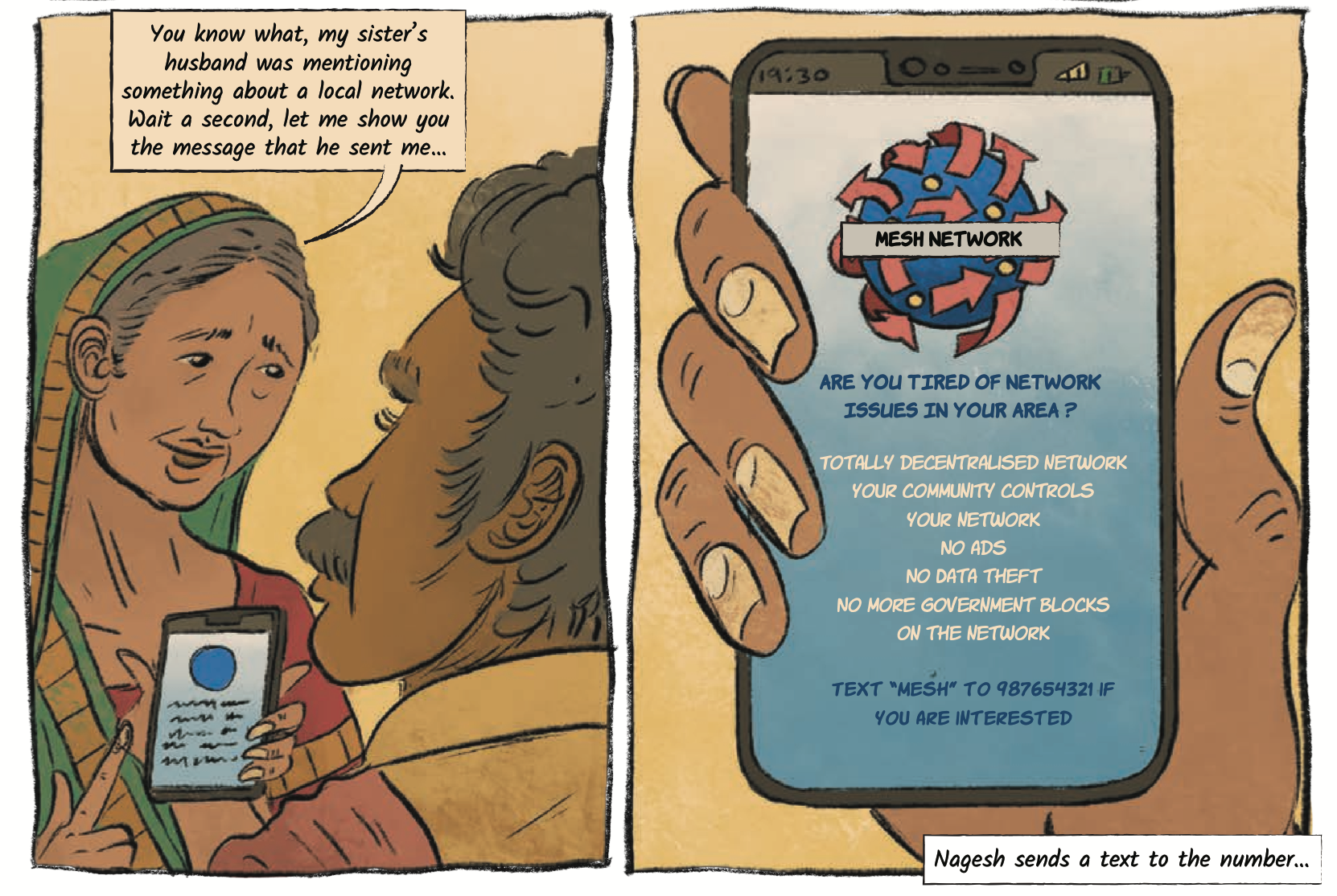Between India and Dundee, experiments in how to "decentralise digital". Meaning putting powerful tech in communities' hands
From “Making a Mesh”
In this cosmolocal world, everyone can learn from everyone else. This “Decentralising Digital” project between UK universities like Dundee and St. Andrews, and independent food producers and design agencies in India, is a fascinating example of how new stories of technology can be co-created, making more liberatory tech futures thinkable and do-able:
As they write in their site intro:
Technology is already successfully contributing to socio-economic development in India but the narratives used to frame these successes, and the types of technologies implemented, are narrow and frequently urban-centric.
Often, these technologies are products of companies far removed from India and their business models extract value from the billions of people that use them while directing economic rewards to a small elite. the asymmetric relationship between the makers of such technologies and the people that use them is sometimes referred to as Digital Colonialism.
From “Making a Mesh”
Decentralising Digital is our response to this discord between how such technologies are designed and made, and the people that use them; a project that explores the contours of a future in which digital technologies are inspired and informed by local contexts and considerations.
This project is not about delivering solutions to problems, but about exploring what issues communities want to be heard and what questions policy makers should be asking.
We want to challenge existing narratives, to reflect the diverse hopes that people and communities from rural areas have for their futures and the roles that emerging technologies might play in supporting and delivering these.
Our approach borrows from speculative design practices. By telling stories about different futures we want to encourage people to think critically about the present and the decisions that would need to be taken to make these hopeful futures a reality.
These stories manifested in three comic strips, disseminated among the producers and their communities (the producers are Black Baza Coffee, Buffalo Back Collective, Janastu), collated in this book. We’ve pasted the front pages of each design future fiction in this blog. As one of the project’s consultants John Thackara writes:
In the new economy emerging from these turbulent times, the word ‘development’ is taking on a profoundly different meaning. Its core value is stewardship rather than extraction. It is motivated by concern for future generations; not by what ‘the market’ needs in the next few months. It cherishes qualities found in the natural world, formed over millions of years of natural evolution. It also respects social practices – some of them very old ones – of other societies, begun in other times.
Future of Food (in Kannada or English)
This story is set in 2035. It traces the various steps that were taken over time to build healthier farming ecosystems, nutritious local food, prosperity for small organic farmers, and how localised technology innovations enabled farmers to drive this change.





